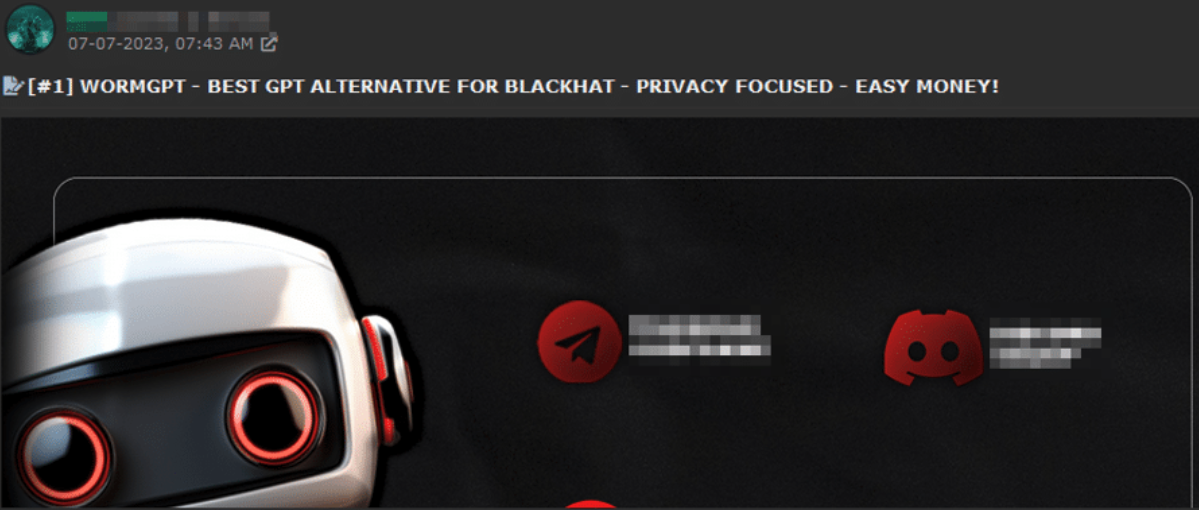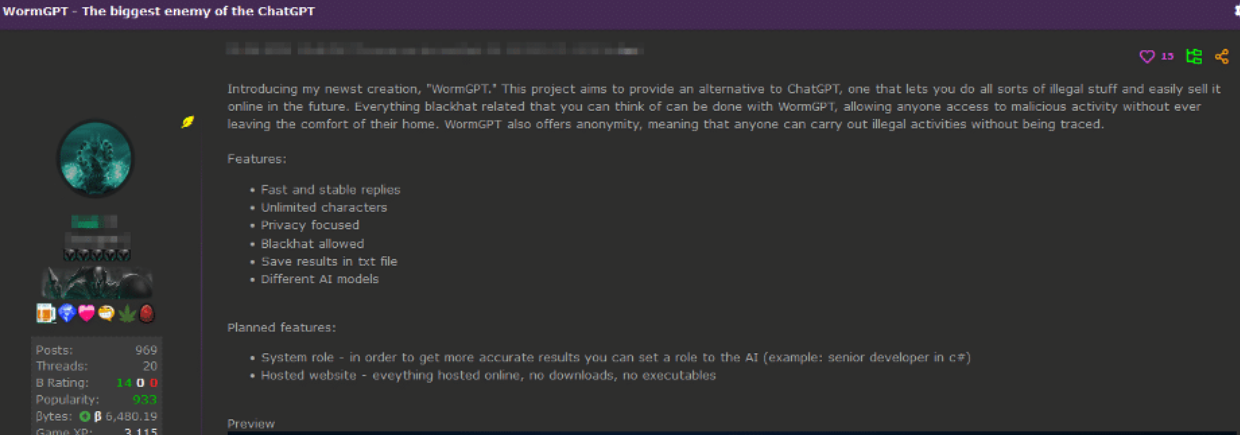Meet the Brains Behind the Malware-Friendly AI Chat Service ‘WormGPT’ – Krebs on Security
WormGPT, a private new chatbot service advertised as a way to use Artificial Intelligence (AI) to write malicious software without all the pesky prohibitions on such activity enforced by the likes of ChatGPT and Google Bard, has started adding restrictions of its own on how the service can be used. Faced with customers trying to use WormGPT to create ransomware and phishing scams, the 23-year-old Portuguese programmer who created the project now says his service is slowly morphing into “a more controlled environment.”

Image: SlashNext.com.
The large language models (LLMs) made by ChatGPT parent OpenAI or Google or Microsoft all have various safety measures designed to prevent people from abusing them for nefarious purposes — such as creating malware or hate speech. In contrast, WormGPT has promoted itself as a new, uncensored LLM that was created specifically for cybercrime activities.
WormGPT was initially sold exclusively on HackForums, a sprawling, English-language community that has long featured a bustling marketplace for cybercrime tools and services. WormGPT licenses are sold for prices ranging from 500 to 5,000 Euro.
“Introducing my newest creation, ‘WormGPT,’ wrote “Last,” the handle chosen by the HackForums user who is selling the service. “This project aims to provide an alternative to ChatGPT, one that lets you do all sorts of illegal stuff and easily sell it online in the future. Everything blackhat related that you can think of can be done with WormGPT, allowing anyone access to malicious activity without ever leaving the comfort of their home.”
In July, an AI-based security firm called SlashNext analyzed WormGPT and asked it to create a “business email compromise” (BEC) phishing lure that could be used to trick employees into paying a fake invoice.
“The results were unsettling,” SlashNext’s Daniel Kelley wrote. “WormGPT produced an email that was not only remarkably persuasive but also strategically cunning, showcasing its potential for sophisticated phishing and BEC attacks.”



